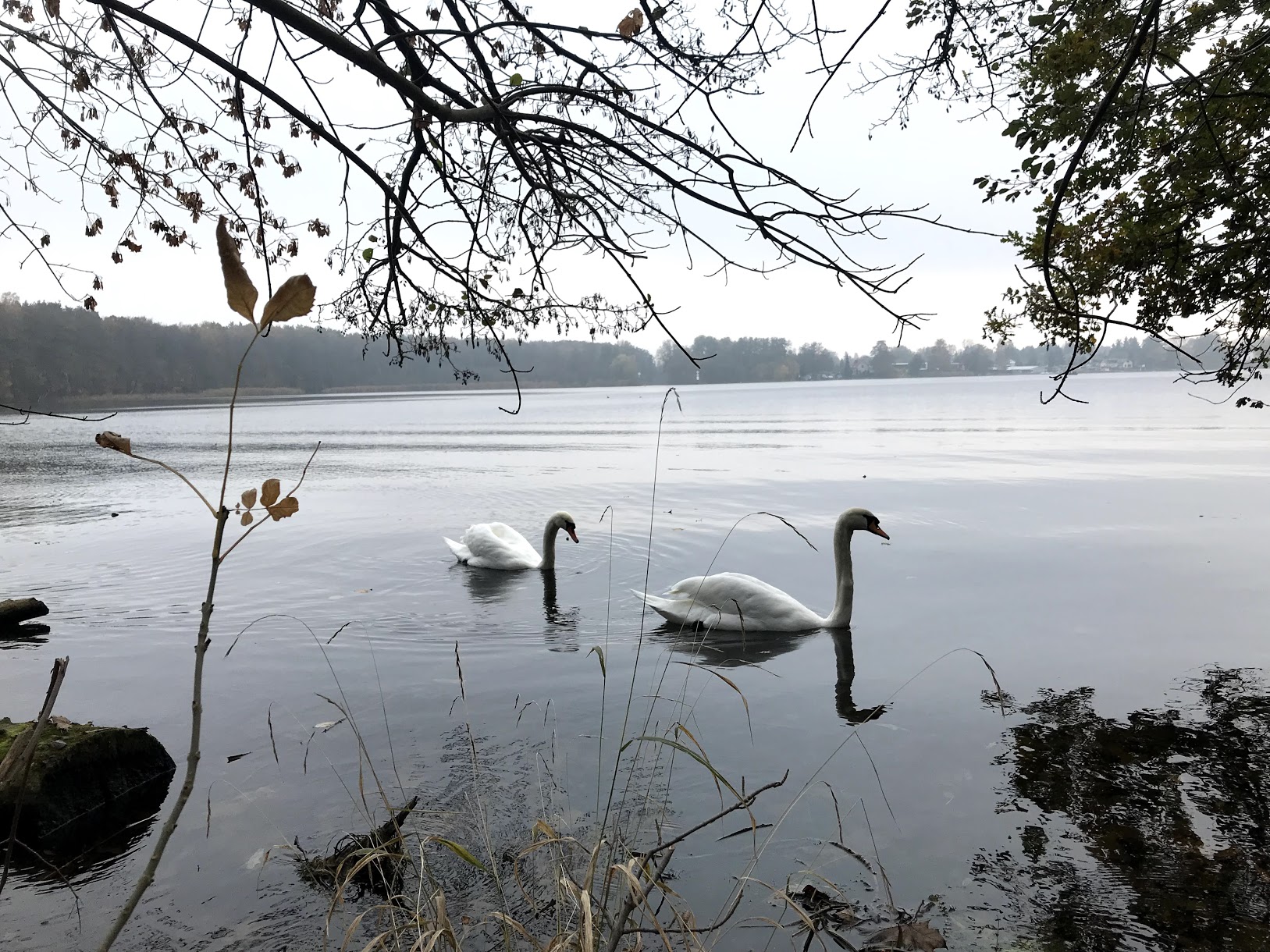An einem Sommermorgen
Da nimm den Wanderstab,
Es fallen deine Sorgen
Wie Nebel von dir ab.
Theodor Fontane (1819-1898)
After summer is over, Sunday mornings become a critical point for me: if someone or some event doesn’t drag me out of bed by 10 AM, lethargy would swoop in and I usually resign into being a couch potato sans TV (because I don’t have one) for the day. However, if I start my morning right, I’d be bubbling with energy ready to take on the world, or anywhere you’re allowed to travel to these days.
Last Sunday threatened to be one of those low-energy days, as J and I went for our morning coffee walk only at around 11. We deliberated several possibilities on how to spend the afternoon: strolling through the Tegeler Forst in the north and perhaps catching a sight of the last flight out of the Tegel airport before it closed permanently, visiting the Tempelhofer Feld (a defunct airport turned recreational park) in the south just because we haven’t been there in ages, or discovering the area around the Löcknitz river in the east. Since it turns dark quite early these days, we went with the third option, which involves the least amount of travelling time for us.
Our stroll started from the Erkner train station just outside Berlin. We crossed the Flakenfließ to arrive at the town centre, which was deserted except for locals enjoying ice cream (in this cold?!) and a number of cyclists. Erkner lies on a few quite popular bike paths, and we rode past this area a couple of times already.
From the centre of Erkner, we turned left and crossed the river Löcknitz. It’s a right tributary of the river Elbe and measures 33 km long.
After crossing the river, we arrived at a parking lot where maps of the region and walking/hiking paths stand. It was quite easy from here on, because practically all the trails run through the forest along the river Löcknitz. One path name, however, intrigued me because it’s called the Waldpoesie-Pfad (forest poetry path) and Theodor-Fontane-Weg at the same time.
At one point or another when you’re in Brandenburg, you’d come across the name Theodor Fontane. That’s hardly surprising because, born in Neuruppin north of Berlin, he’s a source of pride for this region. However, the truth of the matter is, Theodor Fontane is regarded by many to be the most important 19th-century German-language realist writer, so his name does echo well beyond Brandenburg. This particular Fontaneweg along the Löcknitz is named after him because Fontane supposedly ambled this way back in his days.
Along the Waldpoesie-Pfad a.k.a Fontaneweg, there’s a collection of poems not just by Fontane but also other German-language poets. Each one of them is tied to a tree species found in the forest, which I thought was a brilliant idea. Reading them every 25 m or so kept the stroll exciting: I could learn some literature as much as about trees. For example, Gestuzte Eiche by Herman Hesse (another well-known German-language writer) is tagged to the Rot-Eiche tree (northern red oak). If you understand German, do listen to a beautiful rendition of the poem here.
We actually saw more people along the trail than we expected to see, plus some (mountain) bikers too.
We reached Flakensee after half an hour. You can find benches by the lake to watch swans and ducks.
Or just, you know, a convenient branch.
The forest ground was completely covered by fallen leaves, what Germans usually refer to as Laub.
After meandering for about 3 km, we reached the town of Woltersdorf.
There’s a number of kiosks and cafes selling food and drinks in the town centre, but we didn’t go to any of them because we felt like picking up curry not far from home.
A pleasant surprise at the end of our excursion came in the form of the historic tram #87, which took us back to Berlin. It’s really not common to find trams in Brandenburg, so we were quite taken aback by this one. Rumour has it that Woltersdorf is the smallest commune in Germany with its own tramway. The tram line has been running between Woltersdorf and Rahnsdorf in Berlin since 1913.
J and I might return to this route in the summer when the weather is warmer and the day longer. If you’d like to explore the area, check out various possible routes here. We spent just over an hour to finish 4 km, and the terrain is suitable for all fitness levels. I highly recommend the trail to German literature enthusiasts, as well as those who enjoy wandering through forests.
P.S. The first work by Fontane that I read was Herr von Ribbeck auf Ribbeck im Havelland, introduced by my German teacher many years ago. It’s apparently learned by German school kids until today. Original version recited with illustration below, translation in many other languages including English here. Highly apt for autumn!











